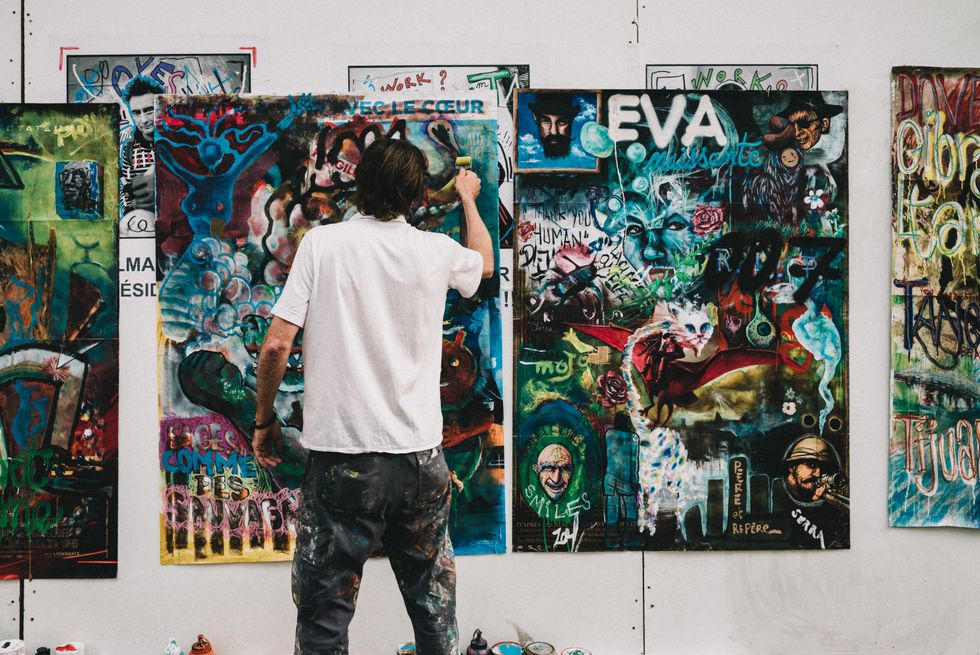Art—and by art I mean painting, puppets, poems, pirouettes, plays…anything—is not an instrument of social change. And if we want it to help us on our way to social change, we won’t ask it to be.
Why? Because art is the one part of what Guy Debord calls our “spectacle” that readily admits that it is, indeed, nothing but a spectacle.
This puts art in the super-powerful position of being able to define for us, with an insider perspective, the inner workings of the world of smoke and mirrors we live in—to depict our lives more accurately than our lives can depict themselves, because the other aspects of our lives can’t admit that they’re nothing but appearances.
Picture a senator admitting, during a speech on unemployment, that they have never personally known an unemployed person. Or picture a spokesperson for Unilever admitting that the company designed Dove’s “Real Beauty” campaign and Axe’s “Axe Effect” ads so that they would sell more of each because of the ad campaigns’ stark oppositions.
It would never happen. Why? Because our economic and political systems don’t work if we know that both democracy and compassionate capitalism are shit-tier scams.
But art has no problem calling out illusions like that. The problem is that, in 2018, those are the easy ones: In the same way that Milan Kundera claims that any good novel is smarter than its novelist, art can elucidate things we’d never think of without it, if only we let it run uncensored.
We are clearly not doing so. But regardless of political opinions—though we should also admit that the American left and right are the same fucking thing as Dove and Axe—it is most advantageous to the population at large if a huge range of ideas can be publicly expressed, from communism to neo-Nazism.
This isn’t some “Let us be guided by the Invisible Hand of the Marketplace of Ideas” bullshit. Such things make no sense: Ideas don’t become prominent by any sort of objective merits but by their ability to fight: Violence is the only consistently effective instrument of social change.
No, we should be happy as commies and fascists publish books or make paintings because art, being the only part of the social spectacle that can freely admit its spectacle-ness, can give us a real prognosis of the state of the world. It is a mirror in which we see ourselves more clearly than a physical mirror can allow.
If we censor ideas we think are immoral, we are not forced to be aware of their existence. This is a problem. People were actually surprised when Trump was elected, are still shocked as fascism makes its comeback. Such obliviousness is inexcusable: Wide and various signs have pointed to the rise of the new fascism for at least 20 years. They’ve just been suppressed or avoided.
And so, in the interest of knowing the world as it is rather than attempting, by controlling symbols, to create an illusion of a better world so that we can ignore our actual social diseases, let’s support our fascist painters, our anarchist puppeteers, our slur-slinging poets (wonder why I can’t find a link for those). We may or may not like them, but their ideas exist, and if we censor them, we may not find out about them until they’re governing us.






 The minimum wage is not a living wage.
StableDiffusion
The minimum wage is not a living wage.
StableDiffusion
 influential nations
StableDiffusion
influential nations
StableDiffusion











